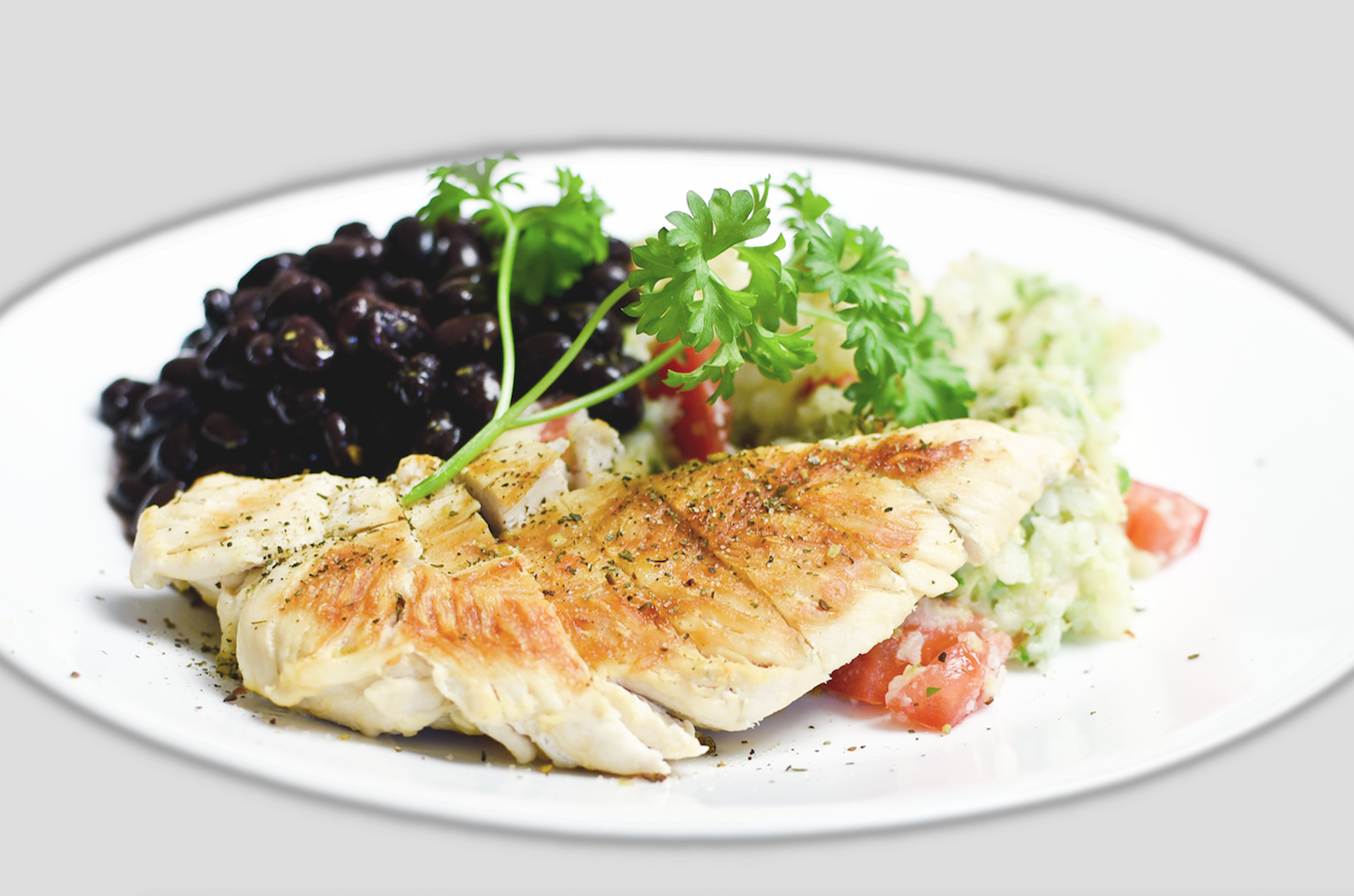Learning how to properly fuel your body for exercise can be just as important as the exercise itself, but what is the best strategy? Carbs for endurance? Protein for muscle building? Pre-workout snacks? Post-workout snacks? Carbs? Protein? Fat?
Maybe we have been overthinking it.
“Most people don’t need special workout nutrition strategies. If you are training for general health and fitness and don’t have an upcoming competition to plan for, you fall into this category,” Jason Anthony, NSCA-Certified Personal Trainer and co-owner of Gainesville Wellness & Performance, said. “Simply eating a healthy, well-balanced meal one to two hours prior to exercise and one to two hours after exercise will meet your workout nutrition requirements.”
A well-balanced meal should include a protein source, a vegetable and/or fruit, a healthy carbohydrate, like potatoes or squash, and some healthy fat, like nuts or olive oil. An example of a well-balanced meal including all four nutritional components is a chicken breast over black beans and cauliflower rice with tomatoes, avocado and cilantro. Together these foods supply vitamins, minerals and antioxidants that will provide the body with energy and promote recovery from exercise.
If you do not have time for a meal or are on the go one to two hours before or after a workout, opt for a snack. A snack should include the same components as a well-balanced meal but in smaller portions. Anthony suggests Greek yogurt with blueberries and some nuts or one to two hard-boiled eggs with baby carrots and hummus.
If you have less than an hour before your workout, chose something easy to digest like a smoothie. “Digestion takes time and the closer you get to your exercise session the less time you have for this process to happen,” said Anthony. Similar to snacks, smoothies should also contain the four components of a well-balanced meal. For example, Anthony suggests blending a serving of protein powder, a fistful of spinach, a handful or two of frozen fruit, about one tablespoon of avocado or nuts/nut butter, and 6–8 ounces of water or unsweetened almond milk.
While these guidelines apply to most active people, high-intensity training, like CrossFit, and long endurance training, like running and swimming, may require additional nutrition strategies. The all-out intensity of CrossFit and the extended duration of endurance training force the body to rely on glycogen (carbohydrate stored in the liver and muscles) for fuel. In addition to a pre-workout meal or snack one to two hours before training and a well-balanced post-workout meal one to two hours after training, CrossFit and endurance athletes may also benefit from eating mid-workout and immediately post-workout to replenish glycogen stores and support muscle recovery. Both mid-workout and immediately post-workout food should be easily digestible as your body is still in fight-or-flight mode instead of rest-and-digest mode.
For long endurance workouts, the American College of Sports Nutrition recommends mid-training carbohydrates, like gels or oranges, every 45–60 minutes. For CrossFit athletes, Anthony recommends a mid-workout amino acid drink that provides 10–15 grams of protein for every hour of training. Immediately post-workout both CrossFit and endurance athletes benefit from the combination of protein and carbohydrate. Some easily digestible carb and protein snacks include one to two scoops of protein powder mixed with fruit juice or coconut water, one to two scoops of protein powder mixed with water along with one to two rice cakes, or a smoothie with one to two scoops of hydrolyzed collagen, coconut water and frozen berries.
*Before starting any new workout or diet, always consult your doctor.
Photo by Tanya Consaul Photography
Related articles:
Make This Hearty Fall Breakfast Hash At Home
Sauna And Salt: How Innovative Spa Therapies Can Benefit Your Health
Healthy Ways To Deal With Holiday Anxiety And Stress
Finding Gratitude: The Secret To Life

